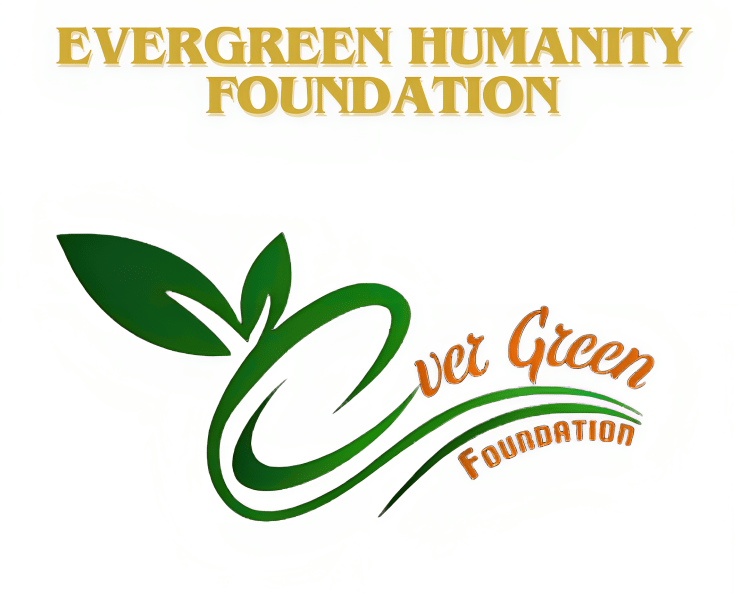WASTE RECYCLING
Recycling waste is crucial for several reasons. First and foremost, it helps to conserve our natural resources.
By recycling materials such as paper, plastic, and glass, we reduce the need for raw materials and minimize the amount of waste that ends up in landfills.
Recycling also plays a vital role in reducing pollution. The manufacturing process for new products often emits harmful pollutants into the air and water.
Additionally, recycling helps to save energy. It requires less energy to process recycled materials compared to extracting and processing virgin materials.
Ultimately, recycling is a sustainable practice that benefits the environment, conserves resources, reduces pollution, and saves energy.
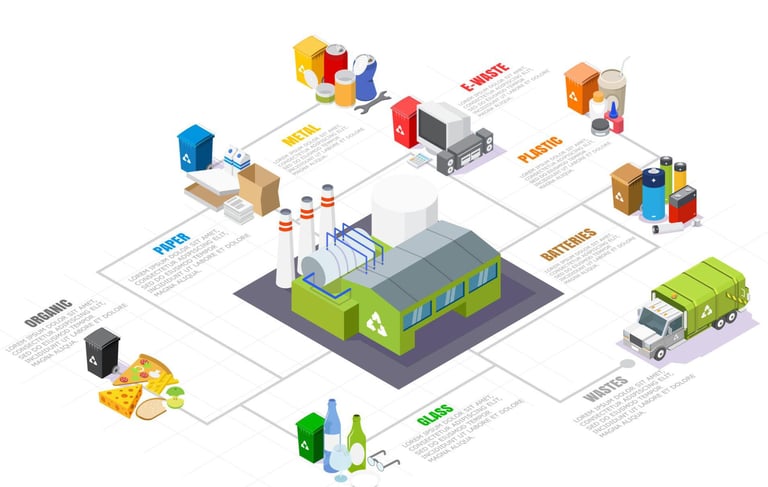

Curbside recycling is a waste management service that allows residents to conveniently recycle their household materials by placing them at the curbside for collection.
It involves the separation and collection of recyclable items such as paper, plastics, glass, and metal from households, using separate recycling bins or bags. An example would be when residents sort their recyclables into designated containers provided by the recycling program, and then place these containers outside their homes on a specific collection day.
The recycling truck then comes along and collects the materials, which are then taken to a recycling facility to be processed and reused.
Curbside recycling is an effective method to reduce the amount of waste that goes to landfills, as it encourages individuals to participate in the recycling process and contribute to environmental sustainability.
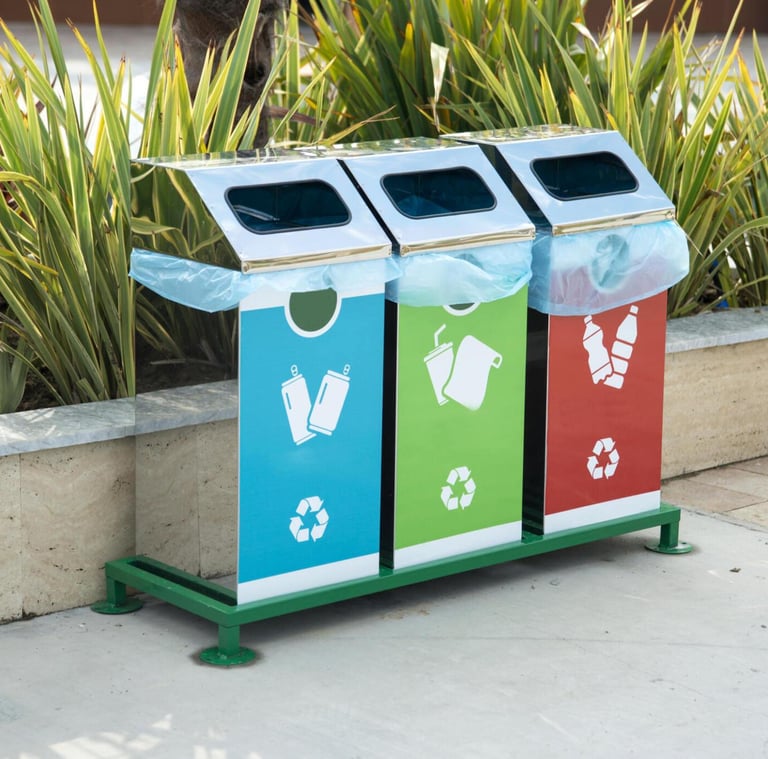

Our Various Approches
1.Curbside Recycling
2.Composting
Composting is a natural process that involves breaking down organic materials, such as food scraps and yard waste, into nutrient-rich soil. It can be done in your backyard or even on a larger scale in industrial composting facilities.
To illustrate this, imagine collecting leftover fruit peels, coffee grounds, and fallen leaves from your garden. Instead of tossing them into the trash bin where they would end up in a landfill, you create a compost pile or bin. Over time, microorganisms like bacteria and fungi begin to break down these materials through decomposition.
As the organic matter decomposes, it generates heat and releases carbon dioxide. This process creates an ideal environment for other organisms like earthworms to thrive. Eventually, the mix of decomposed organic matter turns into dark brown humus – a nutrient-dense substance that enriches soil when added back to gardens or potted plants.
By composting, you not only reduce waste but also contribute to healthier plants and ecosystems by recycling valuable nutrients back into the Earth.
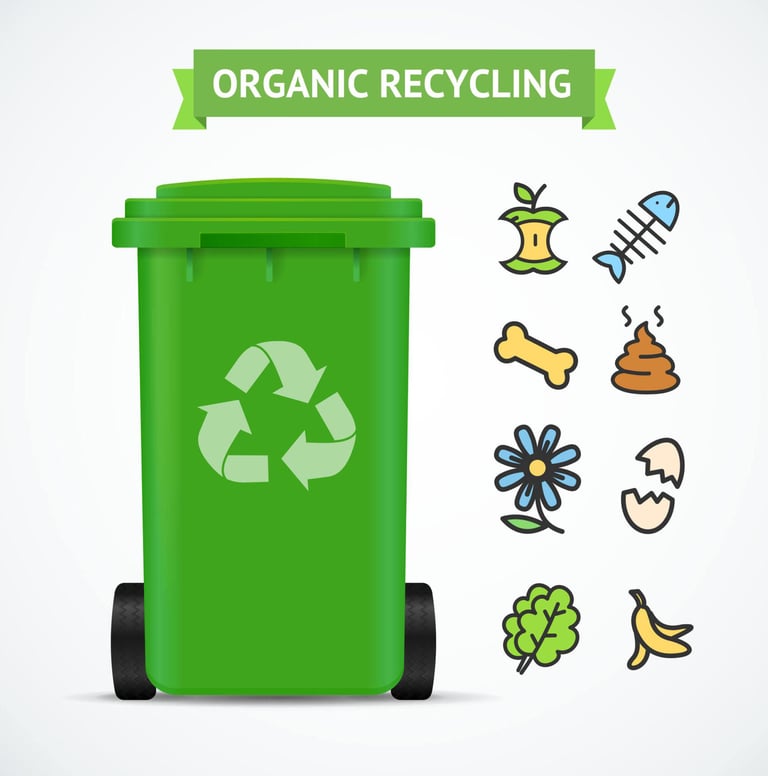

3. Other Methods
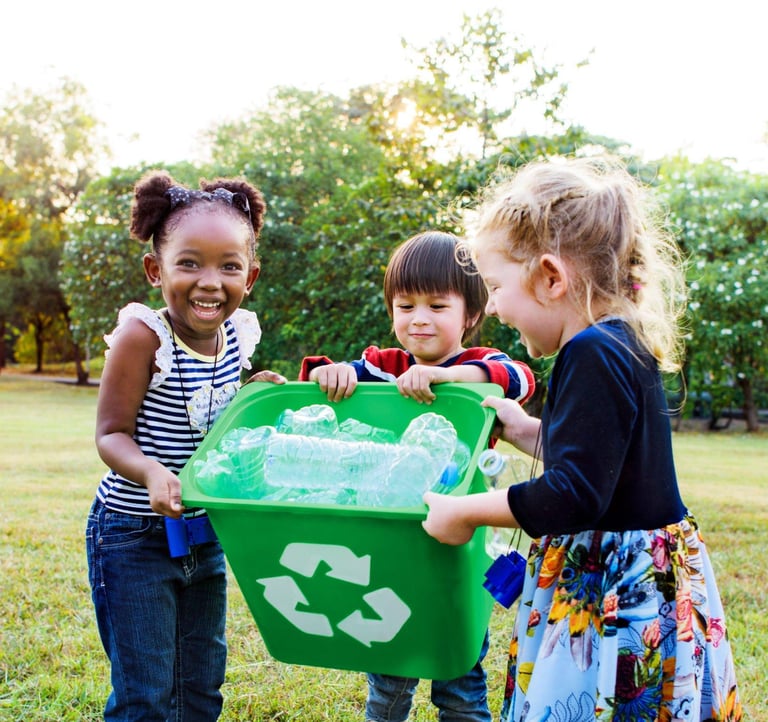

Some cities have implemented "pay-as-you-throw" programs that allow households to pay for the amount of trash they produce, encouraging people to minimize waste and recycle more efficiently.
Furthermore, there are specialized facilities that use cutting-edge technology to sort and process different types of recyclable materials like electronic devices or batteries.
Adopting these varied recycling methods can significantly reduce the amount of waste going into landfills and contribute to a cleaner environment without requiring much effort on our part.
Our Project Works
PROJECT 1:
Good news - they're all in progress, and we're putting in the hard work to make them even better.
So please hang in there and keep checking back for updates!
We appreciate your support and patience, and we promise it will be worth the wait....!
